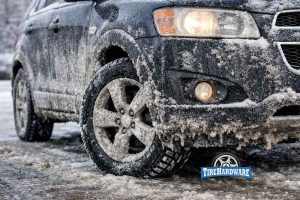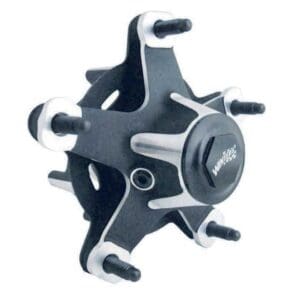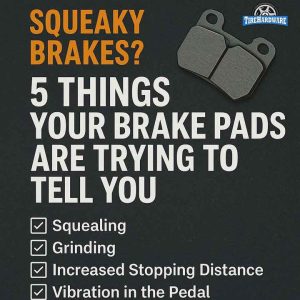Lug nuts keep your wheels securely fastened to your vehicle. When they come loose, it can cause dangerous driving conditions and expensive repairs. This guide explores common reasons why lug nuts, or wheel nuts, loosen and provides actionable solutions to prevent it from happening.
1. Improper Torque Application
Incorrect torque on lug nuts is a leading cause of them coming loose. Over-tightening or under-tightening creates problems.
- Over-tightening: Over-tightened wheel nuts stretch wheel studs and damage threads, causing them to fail or loosen under stress.
- Under-tightening: Loose lug nuts lack the clamping force needed to secure wheels, leading to vibration and eventual loosening.
Solution:
Always use a properly calibrated torque wrench to tighten nuts to manufacturer-recommended specifications. Recheck torque after driving 50-100 miles.
2. Damaged or Worn Threads
Threads on lug nuts or wheel studs can wear down or strip over time, reducing their ability to grip securely.
- Signs of Damage: Cross-threaded, corroded, or visibly stripped threads compromise the nut’s hold.
- Causes: Improper installation, frequent tightening, or rust can damage threads.
Solution:
Inspect wheel studs and lug nuts for damage during tire maintenance. Replace damaged hardware immediately to ensure a secure fit.
3. Poor-Quality Nuts
Low-quality lug nuts made from weak materials deform or fail under stress, especially during extreme temperature changes or hard braking.
- Signs of Poor Quality: Rounded edges, inconsistent threading, or easily stripped surfaces.
- Aftermarket Issues: Cheap aftermarket wheel nuts may not fit properly or meet OEM specifications.
Solution:
Use high-quality, OEM-compatible lug nuts made from durable materials like hardened steel or chrome-plated steel. Avoid untested aftermarket options.
4. Wheel Vibration and Improper Seating
Improperly seated wheels or consistent vibration can loosen lug nuts over time. This issue often occurs after tire changes or rotations.
- Uneven Seating: Dirt, debris, or uneven surfaces between the wheel and hub cause improper seating.
- Vibration Causes: Unbalanced tires, misaligned wheels, or warped brake rotors increase vibrations.
Solution:
Clean wheel hubs and nut seats before installation. Ensure proper alignment and balance tires to reduce vibration.
5. Thermal Expansion and Contraction
Extreme temperature changes can cause lug nuts to expand or contract, loosening them over time.
- Heat Stress: Hard braking or prolonged driving heats wheel nuts, potentially weakening their grip on wheel studs.
- Cold Weather: Rapid cooling contracts metal and creates gaps between the nut and stud threads.
Solution:
Use lug nuts designed to handle temperature fluctuations, such as those made from high-strength steel or alloys.
6. Incorrect Wheel or Lug Nut Type
Using mismatched lug nuts or wheels often leads to compatibility issues that cause loosening.
- Tapered vs. Flat Seats: Different wheels require specific lug nut seat types for proper fitment.
- Stud Length Mismatch: Short studs with deep wheel nuts fail to engage enough threads for a secure hold.
Solution:
Ensure your lug nuts match your wheels’ specifications, including seat type, thread size, and thread pitch.
7. Improper Reinstallation After Tire Changes
Wheel nuts often come loose after improper reinstallation during tire changes or rotations.
- Uneven Tightening: Tightening nuts in the wrong sequence causes uneven pressure and loosening.
- Skipping Torque Check: Failing to re-torque lug nuts after installation can lead to problems.
Solution:
Tighten wheel nuts in a star pattern to distribute pressure evenly. Always double-check torque specifications after installation.
8. Corrosion and Environmental Factors
Exposure to moisture, road salt, or dirt causes rust and corrosion on lug nuts and studs, weakening their grip over time.
- Rust Weakens Grip: Corroded threads create gaps, reducing clamping force.
- Seizing Issues: Rusted nuts may seize, leading to uneven tightening or thread damage.
Solution:
Apply anti-seize lubricant to lug nut threads during installation. Regularly inspect and clean hardware to prevent rust buildup.
9. Wheel Stud Failure
Damaged or broken wheel studs fail to hold lug nuts securely, leading to dangerous driving conditions.
- Causes: Over-tightening, improper threading, or metal fatigue weakens wheel studs.
- Signs of Failure: Cracks, visible bending, or missing studs.
Solution:
Replace damaged wheel studs immediately. Use a torque wrench to avoid overtightening during wheel nut installation.
Final Thoughts
Loose lug nuts compromise your vehicle’s safety and performance. By addressing common causes like improper torque, worn threads, or poor-quality hardware, you can prevent this issue. Always follow manufacturer specifications, use high-quality nuts, and inspect your hardware regularly to ensure a secure and safe driving experience.
If you need replacement lug nuts or tire hardware, explore TireHardware.com for premium-quality products designed for reliability and safety.











